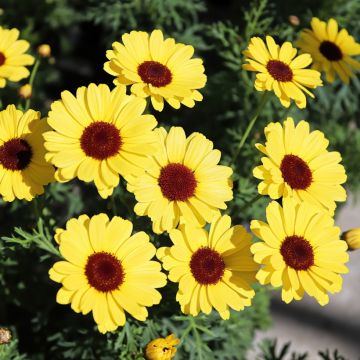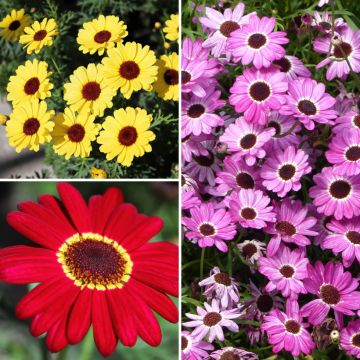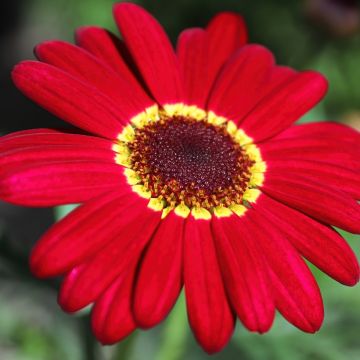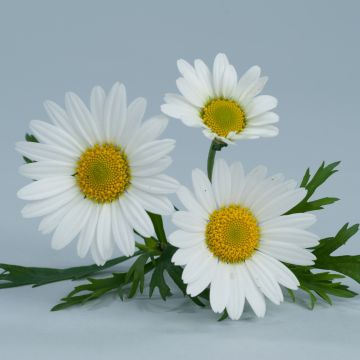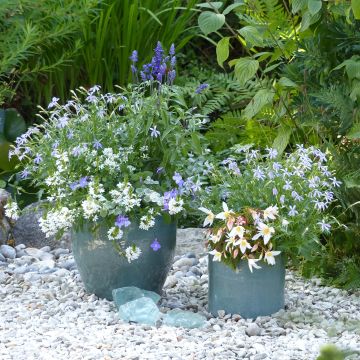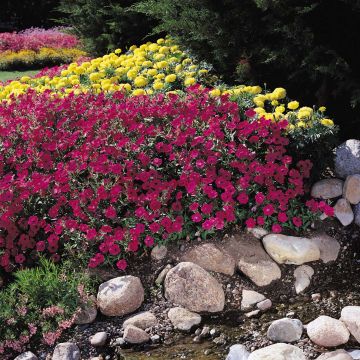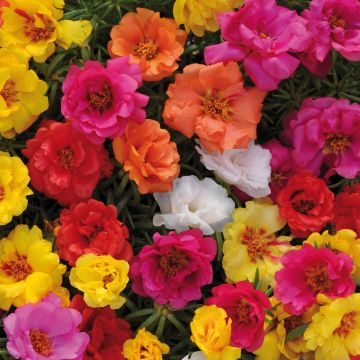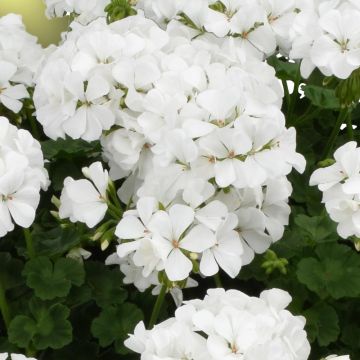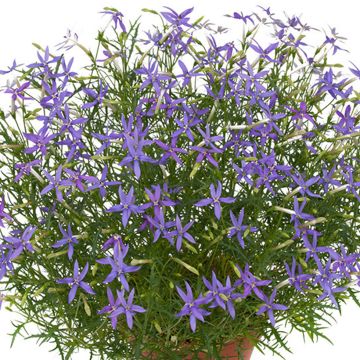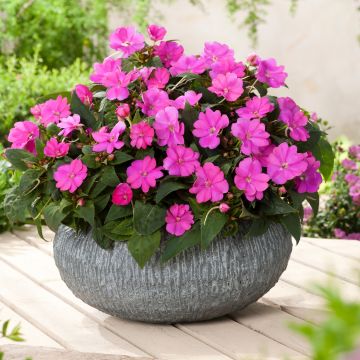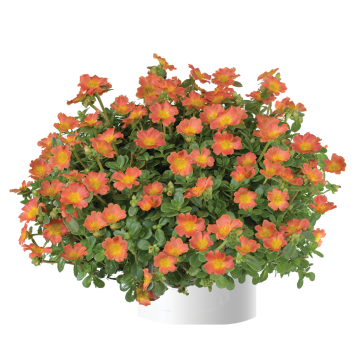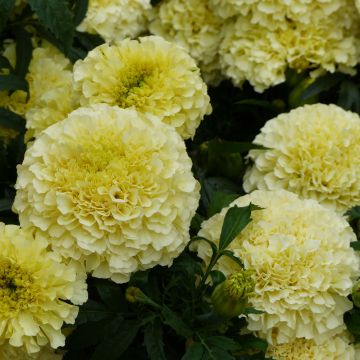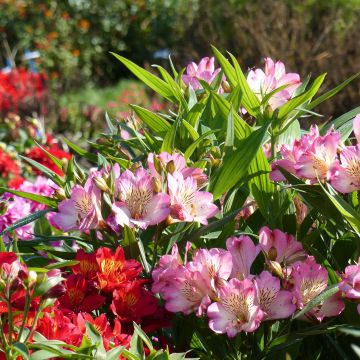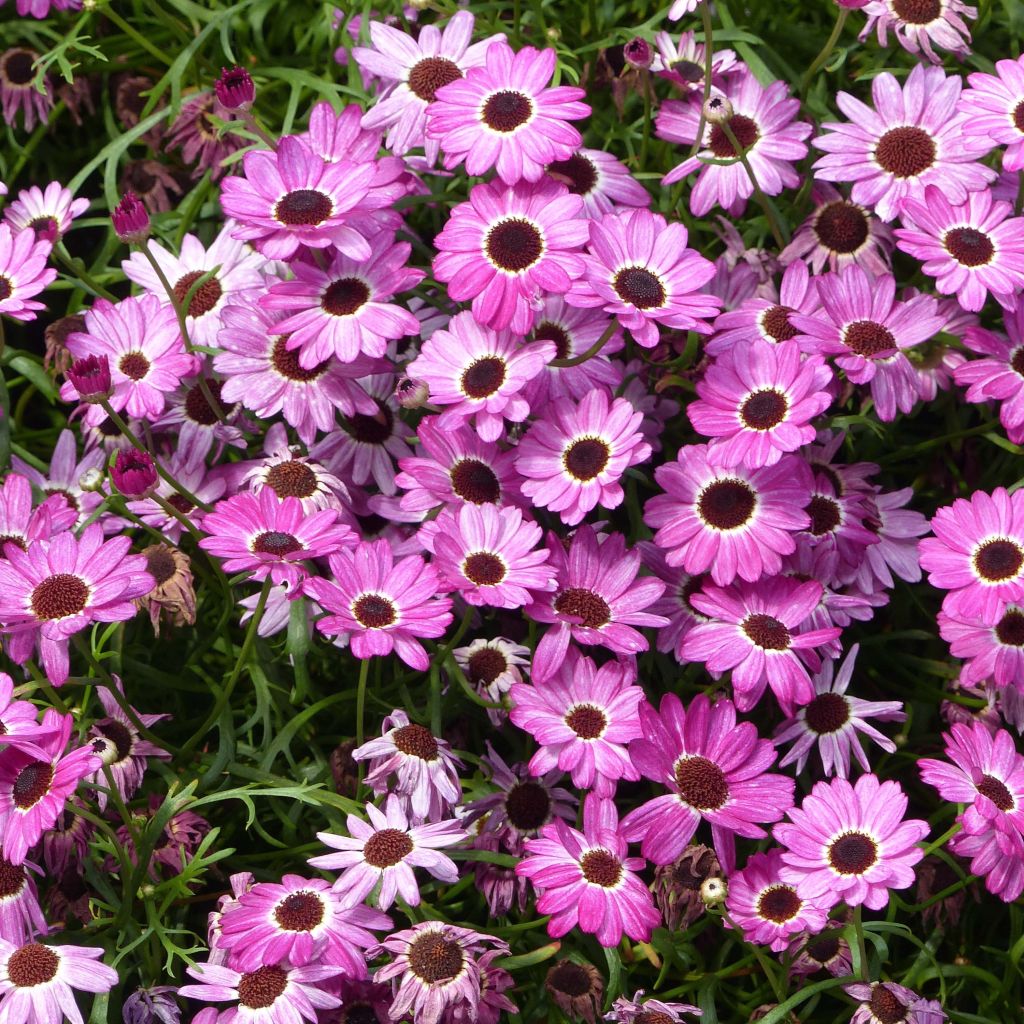

Anthemis Grandaisy Pink Tourmaline - Marguerite
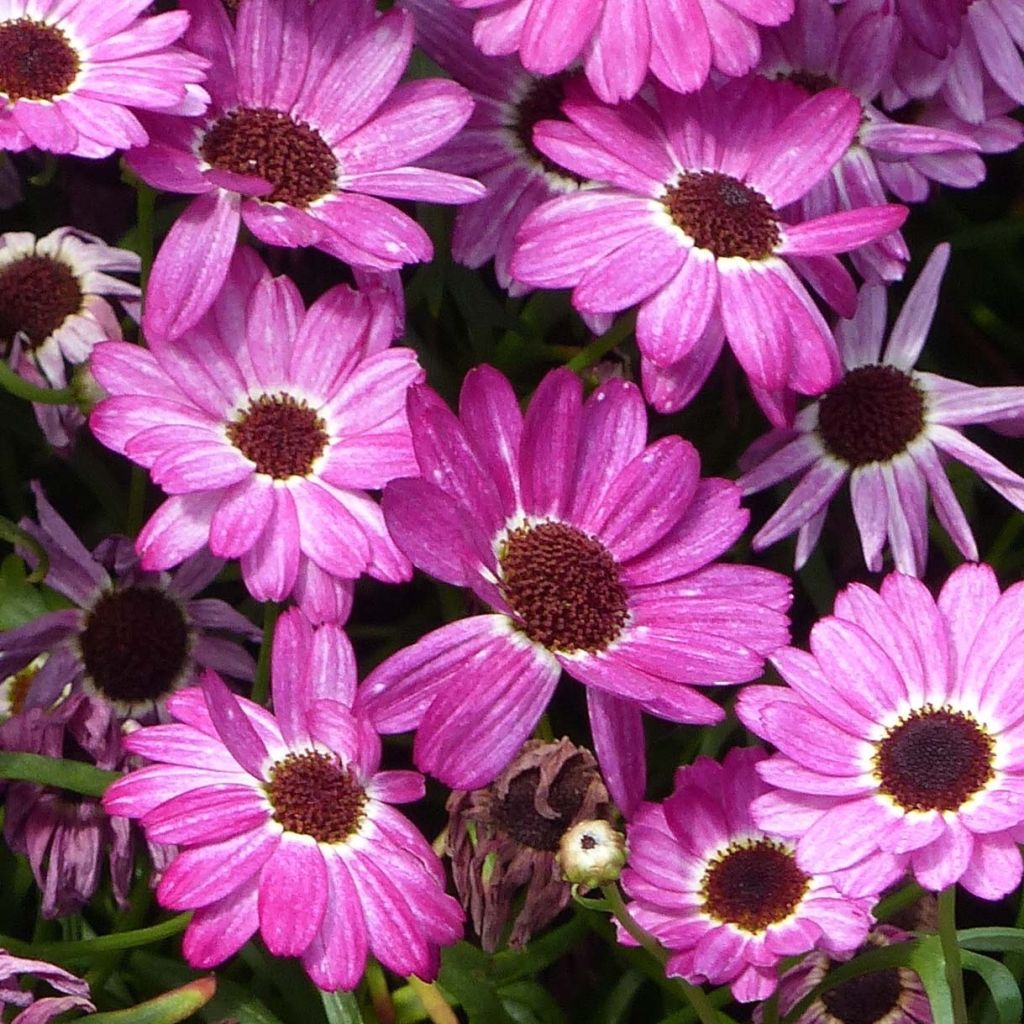

Anthemis Grandaisy Pink Tourmaline - Marguerite
Anthemis Grandaisy Pink Tourmaline - Marguerite
Argyranthemum Grandaisy ® Pink Tourmaline
Marguerite, Shrubby Chrysanthemum
Gorgeous decoration
Claude, 27/10/2019
This item cannot be shipped to the selected country
Delivery charge from €5.90
More information
Schedule delivery date,
and select date in basket
This plant carries a 6 months recovery warranty
More information
We guarantee the quality of our plants for a full growing cycle, and will replace at our expense any plant that fails to recover under normal climatic and planting conditions.
From €5.90 for pickup delivery and €6.90 for home delivery
Express home delivery from €8.90.
Does this plant fit my garden?
Set up your Plantfit profile →
Description
The Anthemis or Argyranthemum Grandaisy 'Pink Tourmaline' is a brand new hybrid variety of anthemis, which stands out for its good resistance to diseases, cold and wet weather, and heat, allowing it to acclimate in most of our regions where it will bloom for 5-6 months, until the first frosts. Its flowers are similar to frosted daisies of mauve and pink, with an almost black centre surrounded by a white ring. They bloom tirelessly on a small ramified bush. Easy to grow, it is an ideal variety for large flowering pots, but also for rock gardens or borders.
The Argyranthemum Grandaisy Pink Tourmaline is a recent horticultural hybrid belonging to the Asteraceae family. The Grandaisy ® series, developed in the Netherlands, is characterized by large inflorescences and undeniable ease of cultivation. It brings together perennials that are not very hardy, commonly grown as annuals. They are beautiful ornamentals with a long flowering period that require little maintenance. The 'Pink Tourmaline' selection will reach 45 to 55 cm (21.7 in) in all directions. It has rapid growth. The flowering, very abundant, is renewed from May-June to October, even more generously if you regularly remove faded flowers. The flowers resemble daisies, 6 cm wide, with gemstone-like colours. The stems are highly branched, with bipennatilobed leaves, forming a very abundant decorative foliage, green-blue, aromatic when crumpled and very light in appearance. It is evergreen in winter if the plant is kept frost-free.
Devoted sun lovers, anthemis dislike excessive humidity in winter more than anything else. In regions spared from frost, plant them in ordinary, well-drained soil, slightly acidic, neutral, or strongly calcareous. Forming beautiful rounded and fully flowering clumps in a very short time, the 'Pink Tourmaline' Chrysanthemum is superb in the company of fennels, perennial flax, borage, cosmos, or blue and white nigellas. It can be very useful for starting a brand new garden, after the passage of construction machinery. It can be planted in country-style beds with Asphodeline lutea, Asclepias tuberosa, but also in more well-kept flower beds, rock gardens, stair borders, or at the turn of a path in a steep garden. And of course, it offers a fantastic spectacle in flowering pots, accompanied by Dichondra 'Silver Falls', silver baskets, Begonia sempervirens, Ageratums or dwarf snapdragons, on the terrace or balcony.
Note: Please note that our young plants in mini-pots are professional products reserved for experienced gardeners: upon receipt, transplant and store them under cover (veranda, greenhouse, cold frame...) at a temperature above 14°C for a few weeks before being installed outdoors once all risk of frost has passed.
Report an error about the product description
Anthemis Grandaisy Pink Tourmaline - Marguerite in pictures
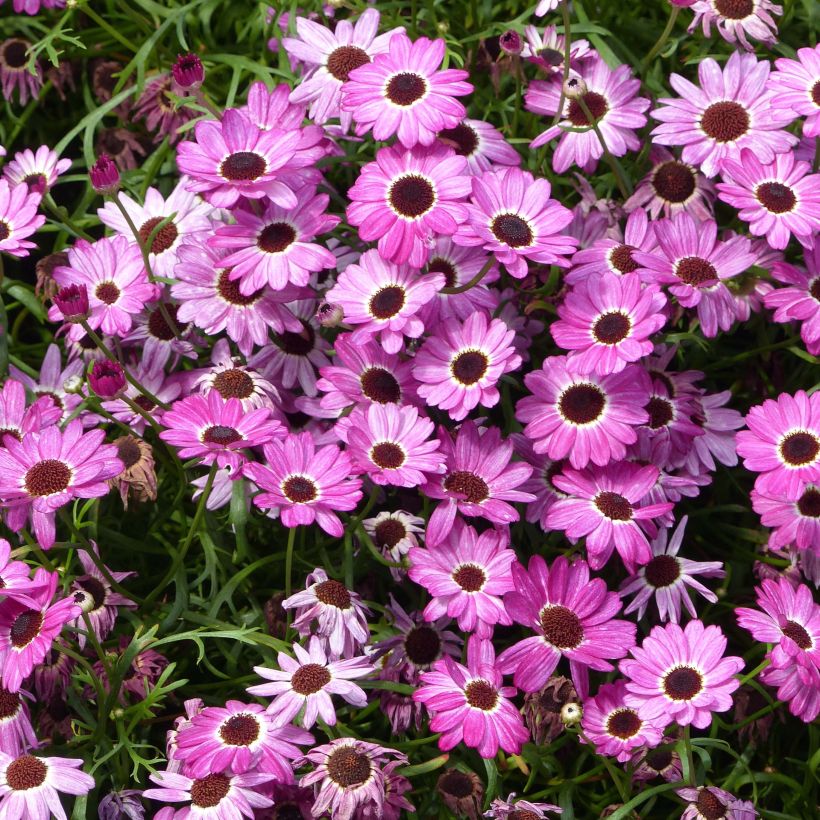

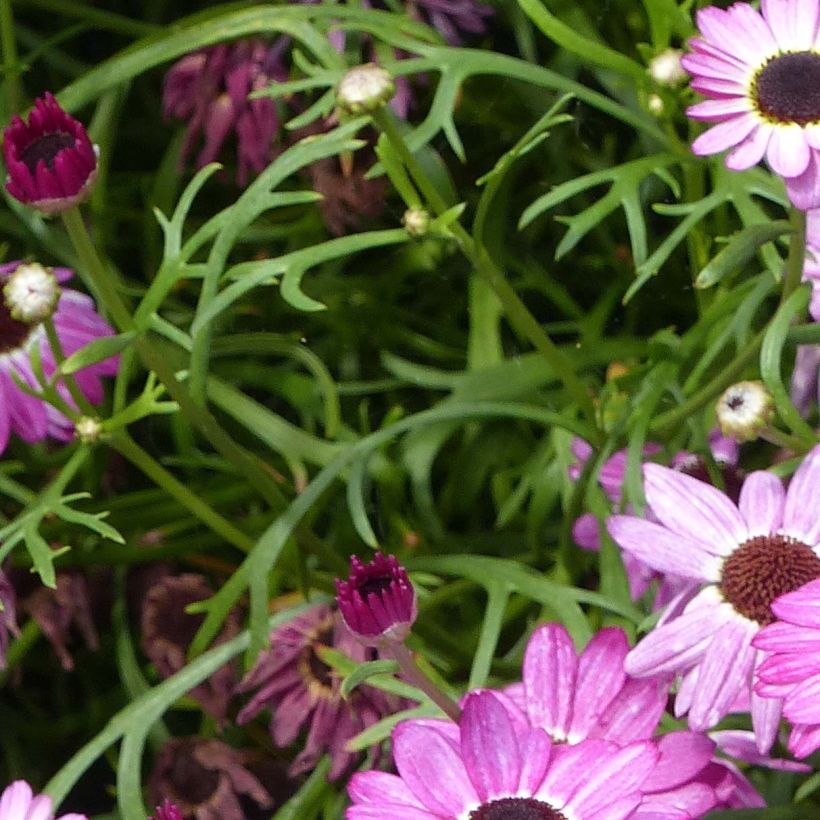

Flowering
Foliage
Plant habit
Botanical data
Argyranthemum
Grandaisy ® Pink Tourmaline
Asteraceae
Marguerite, Shrubby Chrysanthemum
Cultivar or hybrid
Other Argyranthemum
Planting and care
Pot cultivation of Argyranthemum is easy in all regions. Plant the shrubby Anthemis in a light and fertile substrate, composed of potting soil and sand, enriched with a little compost. Drainage is important, and watering should be abundant but spaced out, allowing the soil to dry slightly between waterings. Potted plants can be overwintered in a bright and well-ventilated space, but with very little heating to keep the plants frost-free.
Being sun worshippers par excellence, anthemis are particularly sensitive to excess moisture, especially in winter. In mild climates, plant them in the ground, in well-drained ordinary soil, slightly acidic, neutral, or strongly alkaline to very alkaline. These plants are not very demanding regarding soil quality. However, in heavy soil, their lifespan is shorter than in poor and dry soil. Their resistance to cold is greater when the soil is dry. Pruning the stems to 20 cm (7.9 in) above ground level in early September or in spring promotes the reconstitution of clumps and, at the end of the season, a slight regrowth.
Planting period
Intended location
Care
-
, onOrder confirmed
Reply from on Promesse de fleurs
Plug plants - Annuals
Haven't found what you were looking for?
Hardiness is the lowest winter temperature a plant can endure without suffering serious damage or even dying. However, hardiness is affected by location (a sheltered area, such as a patio), protection (winter cover) and soil type (hardiness is improved by well-drained soil).

Photo Sharing Terms & Conditions
In order to encourage gardeners to interact and share their experiences, Promesse de fleurs offers various media enabling content to be uploaded onto its Site - in particular via the ‘Photo sharing’ module.
The User agrees to refrain from:
- Posting any content that is illegal, prejudicial, insulting, racist, inciteful to hatred, revisionist, contrary to public decency, that infringes on privacy or on the privacy rights of third parties, in particular the publicity rights of persons and goods, intellectual property rights, or the right to privacy.
- Submitting content on behalf of a third party;
- Impersonate the identity of a third party and/or publish any personal information about a third party;
In general, the User undertakes to refrain from any unethical behaviour.
All Content (in particular text, comments, files, images, photos, videos, creative works, etc.), which may be subject to property or intellectual property rights, image or other private rights, shall remain the property of the User, subject to the limited rights granted by the terms of the licence granted by Promesse de fleurs as stated below. Users are at liberty to publish or not to publish such Content on the Site, notably via the ‘Photo Sharing’ facility, and accept that this Content shall be made public and freely accessible, notably on the Internet.
Users further acknowledge, undertake to have ,and guarantee that they hold all necessary rights and permissions to publish such material on the Site, in particular with regard to the legislation in force pertaining to any privacy, property, intellectual property, image, or contractual rights, or rights of any other nature. By publishing such Content on the Site, Users acknowledge accepting full liability as publishers of the Content within the meaning of the law, and grant Promesse de fleurs, free of charge, an inclusive, worldwide licence for the said Content for the entire duration of its publication, including all reproduction, representation, up/downloading, displaying, performing, transmission, and storage rights.
Users also grant permission for their name to be linked to the Content and accept that this link may not always be made available.
By engaging in posting material, Users consent to their Content becoming automatically accessible on the Internet, in particular on other sites and/or blogs and/or web pages of the Promesse de fleurs site, including in particular social pages and the Promesse de fleurs catalogue.
Users may secure the removal of entrusted content free of charge by issuing a simple request via our contact form.
The flowering period indicated on our website applies to countries and regions located in USDA zone 8 (France, the United Kingdom, Ireland, the Netherlands, etc.)
It will vary according to where you live:
- In zones 9 to 10 (Italy, Spain, Greece, etc.), flowering will occur about 2 to 4 weeks earlier.
- In zones 6 to 7 (Germany, Poland, Slovenia, and lower mountainous regions), flowering will be delayed by 2 to 3 weeks.
- In zone 5 (Central Europe, Scandinavia), blooming will be delayed by 3 to 5 weeks.
In temperate climates, pruning of spring-flowering shrubs (forsythia, spireas, etc.) should be done just after flowering.
Pruning of summer-flowering shrubs (Indian Lilac, Perovskia, etc.) can be done in winter or spring.
In cold regions as well as with frost-sensitive plants, avoid pruning too early when severe frosts may still occur.
The planting period indicated on our website applies to countries and regions located in USDA zone 8 (France, United Kingdom, Ireland, Netherlands).
It will vary according to where you live:
- In Mediterranean zones (Marseille, Madrid, Milan, etc.), autumn and winter are the best planting periods.
- In continental zones (Strasbourg, Munich, Vienna, etc.), delay planting by 2 to 3 weeks in spring and bring it forward by 2 to 4 weeks in autumn.
- In mountainous regions (the Alps, Pyrenees, Carpathians, etc.), it is best to plant in late spring (May-June) or late summer (August-September).
The harvesting period indicated on our website applies to countries and regions in USDA zone 8 (France, England, Ireland, the Netherlands).
In colder areas (Scandinavia, Poland, Austria...) fruit and vegetable harvests are likely to be delayed by 3-4 weeks.
In warmer areas (Italy, Spain, Greece, etc.), harvesting will probably take place earlier, depending on weather conditions.
The sowing periods indicated on our website apply to countries and regions within USDA Zone 8 (France, UK, Ireland, Netherlands).
In colder areas (Scandinavia, Poland, Austria...), delay any outdoor sowing by 3-4 weeks, or sow under glass.
In warmer climes (Italy, Spain, Greece, etc.), bring outdoor sowing forward by a few weeks.

































